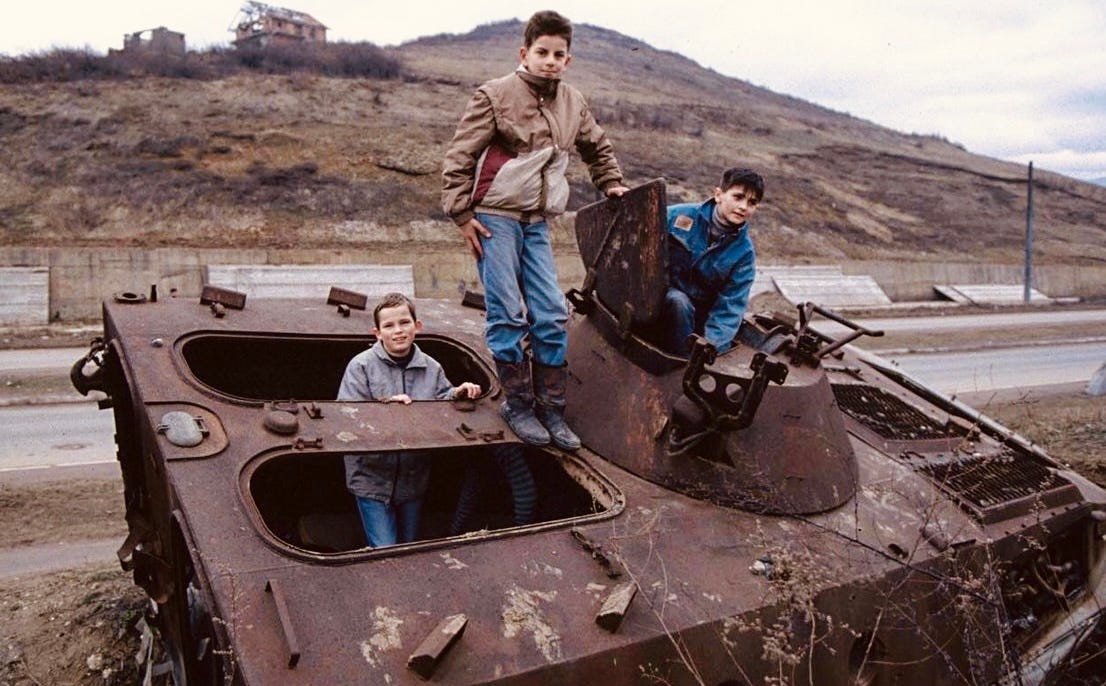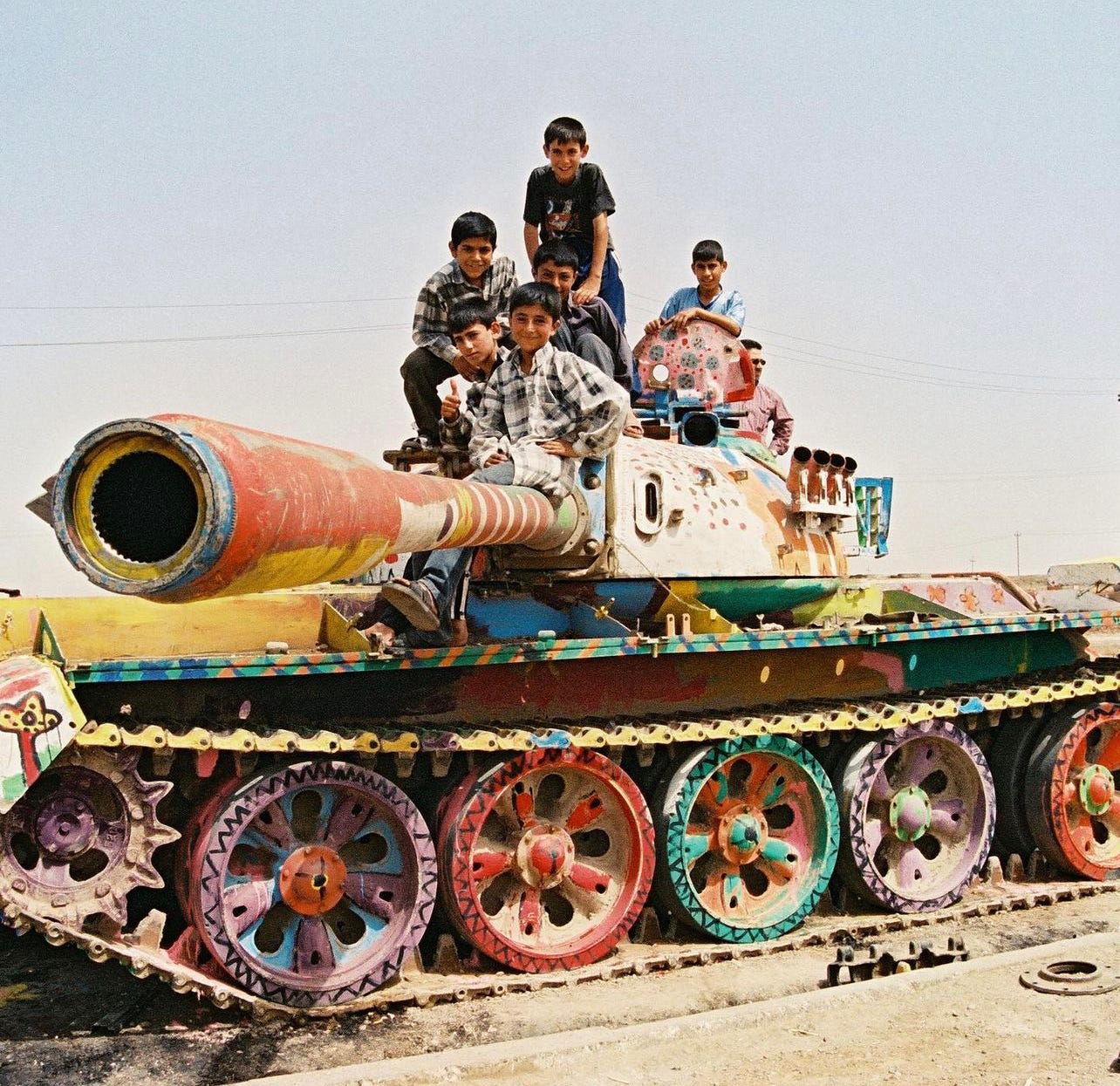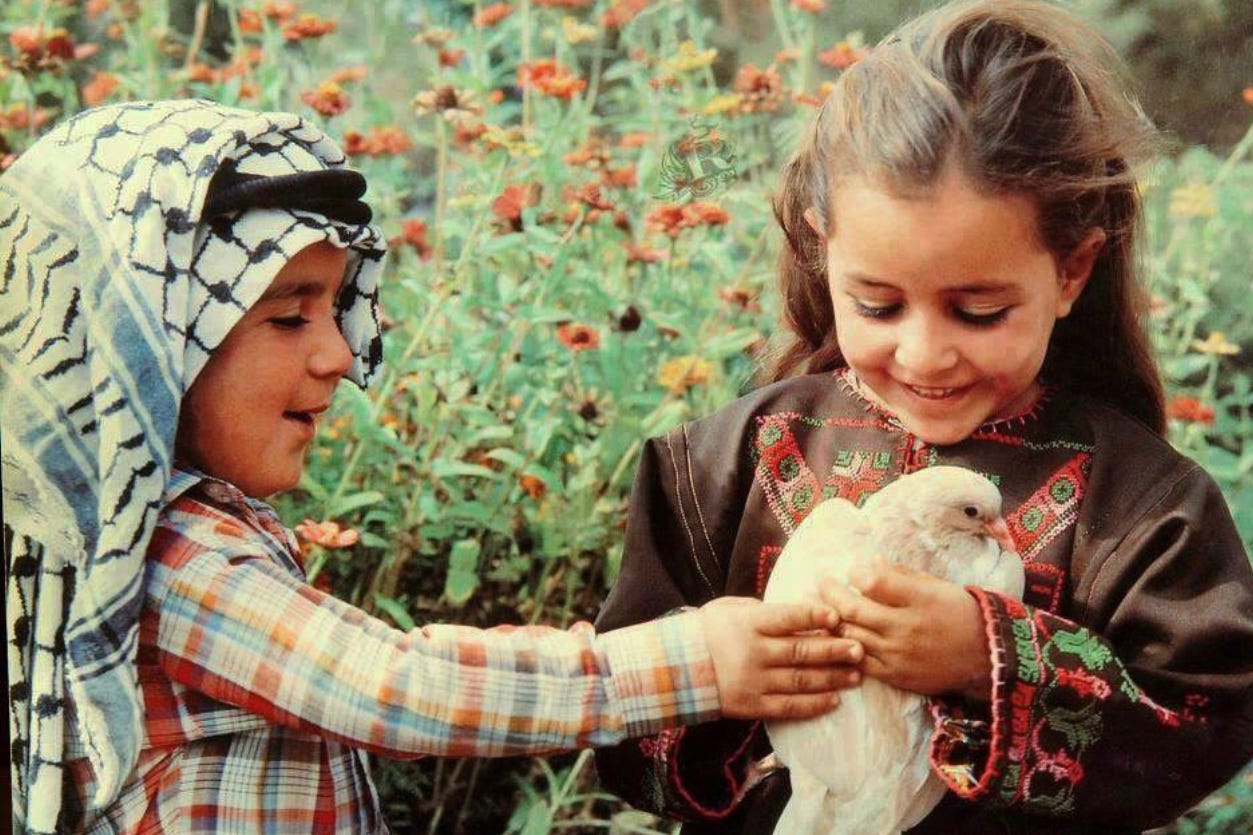Notes On Community
How Palestine weaves us together.
I was six years old when Croatian military forces broke into our apartment, forcefully dragged my father out, and threw him onto a bus. The military was executing a strategic maneuver to conscript all able-bodied men, and deploy them to the front lines. I remember running down the stairs, crying, not understanding what was happening, and chasing the bus barefoot as it drove away.
It would be three and a half years until I saw him again. During those years, my brother, mother, and I lived in extreme poverty, fear, and danger, not knowing if each day would be our last.
My mother needed to go to work occasionally while my brother and I stayed locked in a closet in complete darkness or in the basement with other tenants.
A few days a week, we had to venture out under intense bombing and shelling to wait in line for water. The cistern truck would park close to our building, and my brother and I would bring a canister each while snipers took shots at everyone in town. Going out every day was a risk, but it was either going out to get water and seeing if we could find any food scraps, or facing the possibility of dying from shelling or hunger.
Just a few days after my seventh birthday, Stupni Do, a Muslim village where my mother's colleague lived, was entirely massacred. Women were raped, locked inside their homes, and burned alive together with their children. My mother's colleague was with her at work when the news reached him. It remains one of the most terrorizing stories of my childhood.
During the three years of the Bosnian war and genocide, we survived because of our community. When my brother and I waited in line for water, our neighbors would cover our heads with their jackets to "protect" us from snipers. I felt safe then. I didn't know at the time that a jacket couldn't protect us from bullets, but at that moment, that gesture made me feel at ease. All the people lining up to get water kept me safe because I knew we weren't alone.
Even after the murder of his entire family, my mother's colleague would still help in any way he could, bringing firewood and food to share with us.
During the intense bombardment, we sought refuge in the basement of our building, together with all the tenants, or sometimes in my school's gym. We found solace in song and dance, clinging to our humanity. Looking back, I see the efforts my mother and our community made to ensure all the children felt safe, even when they were experiencing complete shock and trauma.
Everything was shared—limited food, firewood, clothes, books. Mostly, I recall us uniting: my mom's colleagues from work, her friends, and their children; together, we survived. The only store in town that remained open during periods of low bombardment allowed us to keep an open tab. I remember notebooks with my mom's name, filled with everything we got; the owner trusted we'd pay them back when we could, after the war.
The Palestinian people are touching my heart, my memories flooding back as I watch them make and serve street food for everyone. They gather together, dancing amidst the rubble. Journalists sing despite the horror they have to record for the world. In front of thousands of murdered loved ones, Palestinian communities hold prayers, embrace, and offer comfort to each other, all while the world leaders turn a blind eye.
The purpose of genocide is to annihilate a community—to deliberately deny its very existence. Yet, what Israel and the US fail to grasp is that in their attempt to obliterate Gaza and the Palestinian spirit, they inadvertently forge unbreakable bonds among the global community. In our increasingly interconnected world, the question of belonging is paramount. Settler colonialism places its bets on capitalism, succeeding only through the ruthless tactics of ethnic cleansing, displacement, dehumanization, and the obliteration of communities—stripping away their land, culture, traditions, and dignity.
They understand that the power of people is mightier than those in positions of power. The deliberate fragmentation of societies serves imperialist ambitions because individuals detached from any sense of belonging are easily manipulated and controlled to serve capitalistic agendas. In pursuing a more globalized world, colonizers paradoxically strive to deepen divisions, failing to recognize that true strength lies in the unity of diverse communities.
I think how our togetherness is the antidote in a world of dislocation, terror, and anxiety. Humanity, undivided and united, emerges as the ultimate remedy.
One powerful way to reimagine a community is by facing difficult conversations and confronting atrocities together. Instead of avoiding discomfort or shielding ourselves from pain, we must cultivate the capacity for challenging discussions. It involves resisting the urge to run away, unfollow, or fight when faced with discomfort. This resilience in the face of difficulty is vital for fostering a community that thrives on understanding, empathy, and collective strength.
Another facet of solidarity involves relinquishing personal conveniences and comforts and finding the courage to speak up despite fear. It means prioritizing collective well-being over individual comfort and using our voices to advocate for justice and change, even when it may be intimidating or challenging. Our solidarity requires a commitment to shared values and a willingness to make personal sacrifices for the greater good.
Community is not about spending thousands of dollars to attend a sisterhood event or a workshop. It's about constantly questioning what true solidarity means. How does everything we do contribute to helping someone else? It's a journey of letting go of the notion that we need more than we already have. What else can really bring us happiness if not the well-being and liberation of others?
When I start to reimagine communities I see us trading, sharing meals, cooking together, listening with empathy, decolonizing our minds, hosting free events in our living rooms, making art, marching, distributing aid, advocating, offering a helping hand, boycotting, swapping, engaging in intercultural dialogues, ensuring physical protection and safety, and creating honest, vulnerable spaces where we can both disagree and still belong. Showing up daily for each other in ways that feel nourishing, radical, and meaningful.
There are more questions in me than answers right now, but it's something.
I do know one thing for sure – we need each other.
We need the kind of community in the world that the Palestinian people share among themselves. A community marked by resilience, diverse cultures, a rich history, a profound connection with the land, a deep respect for life, unwavering faith, and roots that defy erasure.
With love,
Vanja
While my publication is free for everyone to read, I'd like to invite you to support in other ways that keep my creative journey possible. Your backing fuels my work and enables its continuity. If you enjoy this newsletter and find it valuable please consider:
Spreading the Word: By sharing my work with your loved ones and on social media, you help my words and work reach and inspire more people.








Thank you for sharing your story. My son’s father is first generation Australian who’s family immigrated from former Yugoslavia, Split and Bosnia and Herzegovina. I have a deep respect and love for the history of the Balkans.